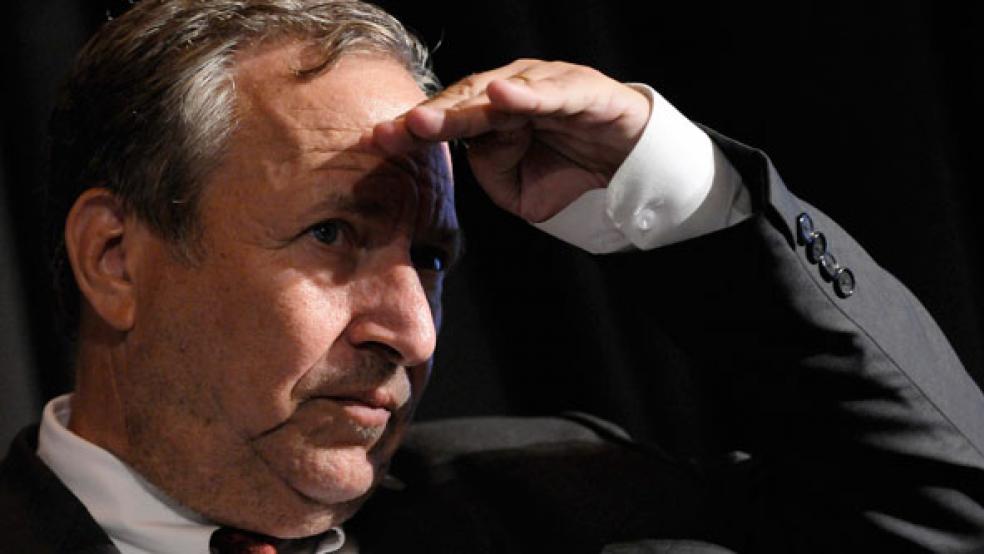Amid new signs that Europe is in a double-dip recession and U.S. job growth is faltering, two of the leading macroeconomists of their generation warned Wednesday – in two separate events – that the domestic economy appears headed for a lost decade marred by high unemployment, sluggish growth and rising inequality.
Though one is considered liberal and the other a centrist, Princeton University professor and New York Times columnist Paul Krugman and former National Economic Council chairman Lawrence Summers offered similar diagnoses of what ails the U.S. economy.
“For the first time in 75 years, we are experiencing a protracted recession due to a lack of demand,” Summers said during a speech to the Center for Global Development in Washington. “It’s now been about five years since the recession began and it appears the stagnation will be with us for another long interval.”
“There is not enough demand,” Krugman said during an appearance at the Economic Policy Institute, where he gave a talk to promote his new book, End This Depression Now. “We focused a lot – too much – on the financial sector’s problems. Yet that is long since gone and we still don’t have a steady recovery. That tells us the crisis was far more about household debt.”
Both economists blamed government fiscal policy for the prolonged nature of the downturn, though they focused on different aspects of it. Krugman said premature budget austerity in the U.S. had forced the destruction of more than a million public sector jobs and lost contracting opportunities from reduced infrastructure investment. Unemployment would be close to 7 percent instead of the current 8.2 percent, he said, without the government spending cuts demanded by the Republican majority in the House of Representatives.
Summers, taking a slightly longer view, pointed to the rise in income inequality in the U.S., which on the eve of the Great Recession had reached levels not seen since the eve of the Great Depression. The top 1 percent of earners now takes home around 20 percent of the nation’s total income compared to 10 percent two decades ago, he said, a trend that accelerated through the downturn and is depressing demand among the poor and middle class who have jobs.
Summers said higher productivity from technological innovation that is eliminating manufacturing jobs all over the globe and the growing importance of high value-added business services were the driving forces behind inequality, and little could be done, including through education policy, to reverse those trends. Yet income inequality needed to be addressed if average households were going to resume spending at rates seen in previous economic expansions.
One venue could be the upcoming debate over tax reform. “I find public antipathy to progressive taxation rather surprising,” said Summers. “You can either be for letting the market operate and having taxes fix it, or be for lots of rules that say you can’t pay people more than 20 times anyone else. It’s always seemed to me that the more faith you have in markets, the more enthusiastic you should be about progressive taxation.”
The two talks came amid mounting evidence that the economic recovery, which seemed to pick up steam during the winter months, was faltering for a second straight year. The ADP National Employment Report for April,http://latestnews.thefiscaltimes.com/2012/05/02/private-sector-hiring-sl..., which comes two days ahead of the Labor Department’s official unemployment report, showed the economy added just 119,000 jobs last month, below economists’ expectations of a 177,000-job gain. The private forecasting outfit also lowered its March estimate, which had already showed sluggish job growth.
The news from Europe is also growing gloomier, if such a thing were possible after months of fear that countries like Greece and Italy might default on their sovereign debt. The latest data from Eurozone purchasing managers showed manufacturing took another dip in April, extending its recessionary reading for the ninth straight month. European policymakers now fear that the economic downturn that has ravaged southern tier countries like Greece, Spain and Italy is moving to Germany and France.
Political uncertainty will be added to the mix this weekend with elections in Greece and France. The outlook in Greece is for a divided parliament after voters, frustrated by three years of budget austerity, turned on politicians of every political party, left, right and center.
In France’s presidential race, meanwhile, Socialist François Hollande has a sizable lead over incumbent conservative President Nicolas Sarkozy. Liberal economists like Krugman argue that rejecting “balance the budget” austerity politics, which have dominated European and U.S. politics for the past two years, could help end the downturn.
But conservative economists claim further stimulus measures will lead to rising interest rates and choke off growth. They also say it will trigger uncertainty among economic decision makers on both sides of the Atlantic and prolong the downturn.
With long-term interest rates remaining extraordinarily low despite record budget deficits, Krugman repeated his oft-stated view that such talk had no evidence to support it and reflected an irrational belief in the “confidence fairy.”





